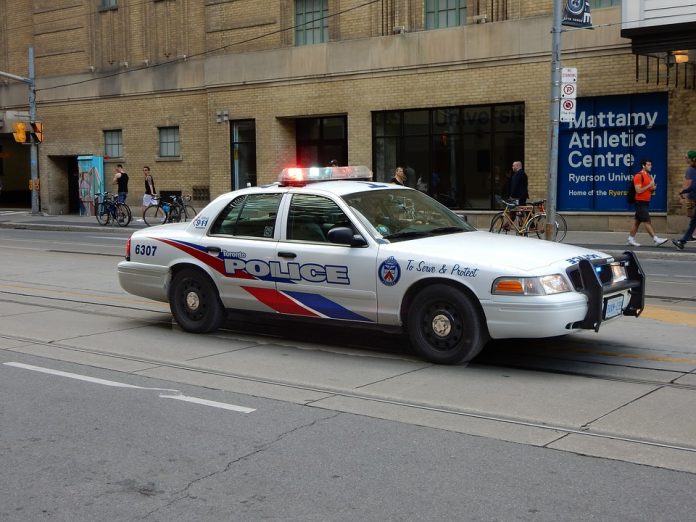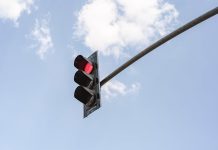It is the policy of the Toronto Police Service that its members shall not discriminate, or attempt to persuade others to discriminate, against any person because of race, ancestry, place of origin, colour, ethnic origin, citizenship, creed, sex, sexual orientation, record of offences, age, marital status, family status, handicap or political or religious affiliation.
This Web page is designed to provide information about the rights and responsibilities of both community members and the police. It will also provide some information as to why police make stops and what you can expect if you are stopped by police.
This document is not written to provide legal advice. If you have specific legal questions, you should refer to the appropriate legislation and/or seek counsel.
Police Officers may stop people who are driving when they observe an offence against the Criminal Code of Canada, provincial Highway Traffic Act, municipal by-laws or any other laws, or if the person or vehicle matches the description of someone in an investigation. Officers may stop people who are driving to ensure compliance with traffic laws and safety standards such as sobriety, possessing a valid driver’s licence and insurance, and the mechanical fitness of the vehicle.
Officers may stop pedestrians on the street if they observe an offence, if they are investigating a complaint, or if they believe the person has committed or is about to commit a crime. These interactions usually involve the officer asking for your name, address and identification, and other questions that are appropriate to their investigation.
Officers also routinely walk in their patrol areas and speak to people on the street. These contacts are not considered stops, and the goal is for the officers and the community to become more familiar with one another.
WHAT TO EXPECT WHEN STOPPED
Each situation is unique and the police officer will alter his or her approach to fit the circumstances. At all times, police officers must work within the Code of Conduct under the regulations of the Police Services Act, the Ontario Human Rights Code, the Rules and Procedures of the Toronto Police Service, and other legislation.
A Toronto Police Officer:
- will provide his or her name and badge number upon request.
- who is not in uniform will present proper identification; you may ask to examine the badge and photo identification so that you are satisfied the person is a police officer.
- will tell you why you are being stopped.
- will only use the force allowed by law (for example, to stop an offence, effect the arrest of a suspect or maintain custody of a prisoner).
- will generally arrest a person for a crime committed in the officer’s presence, or when the officer has reasonable grounds to believe the person has already committed or is about to commit a crime.
Traffic Stops
Common Reasons to Be Stopped
Traffic safety for motorists, pedestrians, and cyclists remains one of the largest public safety concerns in Toronto, so traffic education andenforcement are important roles for police officers. While drivers may be stopped to ensure they have a valid driver’s licence, permit, and insurance and that they are not impaired by alcohol and/or drugs, the most likely reason why people are stopped while driving is for committing an offence against the Ontario Highway Traffic Act. Officers have discretion in issuing tickets.
Offences Fall Into Two Categories:
- Moving Violations: Include improper lane changes, failure to stop at a red light or stop sign, driving in excess of the posted speed limit, etc.
- Non-Moving Violations: Include occupants not wearing seat belts, children not restrained properly, a tail light or brake light not working correctly, or failure to possess a licence, registration, or insurance.
Other Reasons Individuals May Be Stopped While Driving
- Criminal driving infractions, especially impaired driving but also dangerous driving, driving while disqualified and others.
- Criminal investigations often involve officers looking for a suspect, a witness, or a suspect vehicle. You or your vehicle and/or its occupants may match the description the officer is looking for.
- Courtesy or safety concerns, such as when your trunk is open, something is hanging from your vehicle, or something is on top of your vehicle, may also lead to stops.
- The R.I.D.E. (Reduce Impaired Driving Everywhere) Program.
- A warrant exists for the arrest of an occupant of the vehicle.
Things to Do When Stopped
Officers are trained to place a great deal of emphasis on their safety and yours so they can do the job of protecting the public and ensuring public safety. Many of these guidelines conform to safety procedures, based on long experience, that officers are trained to follow.
- When you see the red lights and/or hear the siren, remain calm and safely pull over to the right side of the road (or nearest edge of the roadway on one way streets).
- Remain seated in your vehicle unless the officer advises otherwise. It may take the officer some time to approach your vehicle for safety reasons.
- Ontario law requires drivers to produce their licence, vehicle registration, and insurance card upon demand of a police officer. If your documents are out of reach, tell the officer where they are before you reach for them.
- It is imperative that you identify yourself correctly.
- If the stop occurs during darkness, turn on your dome or interior lights so the officer can easily see the interior of your car.
- If there are passengers in your vehicle, encourage them to stay seated in the vehicle, remain quiet and cooperate with instructions.
- The officer may issue you a ticket. If you feel the reason is vague or unclear, ask the officer for details.
- Avoid getting in an argument. If you wish to contest the ticket, you will have an opportunity to address the matter in court.
- If you receive a ticket, accept it calmly. Accepting the ticket is not an admission of guilt.
- If stopped at a Spot Check (RIDE), lower your window and answer the officer’s questions.
If you do not agree with the reason for the ticket, you have the right to contest it by going to Provincial Court.
If you do not agree with the officer’s conduct or actions during the stop, keep track of all pertinent information, including the officer’s name and badge number. You have the right to complain at any police station of this Service, to the Professional Standards – Investigative Unit, or the Ontario Civilian Commission on Police Services. Officers are unable to handle your complaint on the scene.
As The Driver, You Are Responsible For:
- The safe operation of the vehicle you are driving and the condition of the vehicle.
- Ensuring that all passengers under the age of 16 years are wearing their seatbelts or in a proper car seat, and that the children are properly secured. Children are not to ride on another person’s lap. All passengers 16 years and over are responsible for their own seatbelts. Failure to wear one could result in a ticket.
- It is the driver’s responsibility to ensure that the vehicle being driven is insured and that the required documents are in the vehicle.
- It is the owner’s responsibility to ensure that the person driving the vehicle possesses a valid driver’s licence. The Ministry of Transportation has provided vehicle owners two ways to confirm a person’s driver licence status. There is a fee for using either service.
PERSON STOPS
Common Reasons to Be Stopped
A person might be stopped if a police officer has reason to believe the person:
- Has committed a crime.
- Is about to commit a crime.
- Has evidence of a crime.
Children can also be stopped and apprehended for curfew violations if they are not accompanied by their parent or a by a specified person 18 years of age or older authorized by the parent.
It is unlawful for children under or apparently under age 16 to be present (and unaccompanied as noted above) in any public place or a place of public entertainment in Ontario between the hours of midnight and 6:00 a.m.
As in traffic stops, other reasons to be stopped include officers enforcing laws, looking for information in an investigation, or safety concerns.
Things to Do When Stopped
Again, officers are trained to place a great deal of emphasis on their safety and yours so they can do the job of safeguarding the public. Many of these guidelines conform to safety procedures, based on long experience, that officers are trained to follow.
- Keep your hands where the officer can see them. Don’t put your hands in your pocket or clothing.
- Stay put and stay calm. Don’t walk or run from police. Don’t touch any police officer.
- Cooperate with the officer. Don’t get into an argument.
As with traffic stops, if you do not agree with the officer’s conduct or actions, keep track of all pertinent information, including the officer’s name and badge number. You have the right to complain at any police station of this Service, to the Professional Standards – Investigative Unit, or the Ontario Civilian Commission on Police Services. Officers are unable to handle your complaint on the scene.
POLICE AT YOUR HOME
The police can enter a residence if:
- They have the consent of a resident, or
- They have an arrest or search warrant, or
- There are exigent circumstances, such as if they are in fresh pursuit of a suspect who just entered a residence, or there are circumstances where officers believe there is a threat to the safety of any person or loss of evidence would result if they waited for a warrant, or
- They are performing public safety functions, such as answering a 9-1-1 call, rendering first aid, preventing serious harm to a person or property, or locating a person in need of protection.
IF YOU ARE ARRESTED
If you are arrested, the following will happen to you (young persons and adults):
- The officers will identify themselves as police officers.
- You will be told that you are under arrest.
- You will be told the reason for the arrest.
- The officer will take physical control of you. This may be as simple as placing a hand on your shoulder.
- The officer will inform you that: 1) You have the right to retain and instruct counsel without delay. 2) You have the right to telephone any lawyer you wish. 3) You have the right to free advice from a Legal Aid lawyer. 4) If you are charged with an offence you may apply to the Ontario Legal Aid Plan for legal assistance.
- You will be asked if you understand your rights.
- You will be asked if you wish to call a lawyer.
- You will be searched and should expect to be handcuffed to the rear, for public and officer safety, before being placed in a police vehicle.
- You may be subject to a further search.
- You may be released or taken to a police station, depending on the circumstances.
- If you are taken to the police station, you will talk to the Officer in Charge of the station; who will ask you a series of questions. You may also ask questions of the Officer in Charge.
- At the station, you may be placed in an interview room or a holding cell.
- You may be released by the Officer in Charge, or held to appear before a Justice of the Peace.
- If you are released by the Officer in Charge, the release may be with or without conditions.
- If you are charged with an offence, you may wish to talk with a lawyer. You may apply to the Ontario Legal Aid Plan for legal assistance.
DUTIES OF POLICE OFFICERS
- Protecting life and preventing injury
- Protecting property
- Preserving the peace
- Preventing crimes and other offences and providing assistance and encouragement to other persons in their prevention
- Assisting victims of crime
- Apprehending criminals and other offenders and others who may lawfully be taken into custody
- Laying charges and participating in prosecutions
- Executing warrants that are to be executed by police officers and performing related duties
- Performing the lawful duties that the chief of police assigns
- Enforcing municipal by-laws
- Completing prescribed training
Police have the legislated authority to arrest persons, to search and to seize property, and they may use reasonable force in the execution of their duties.
Source: http://www.torontopolice.on.ca/whenstopped/


















